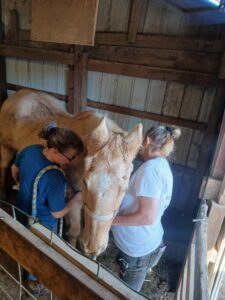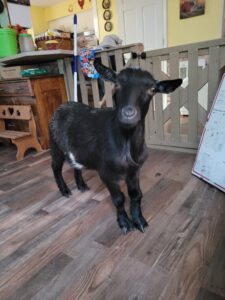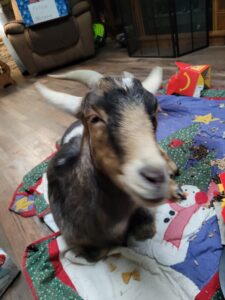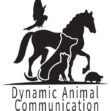
I recently met with a sweet, big hearted lady name Bobbie Wright. She runs a non-profit in Mooresville, IN called Angel’s Acres Farm Animal Sanctuary. I came and worked on one of her horses, Daisy, and then we sat down to chat.
How long have you been doing this?
I’ve been a non-profit 501C3 for 5 years but have been an animal lover all my life. I had horses and many other animals. The name Angel’s acres came from a horse I had and a dog my husband had, both named Angel. Having a sanctuary has always been my dream so I’m living my dream.
What are some of the biggest challenges you face?
Intakes are not easy. This will be their forever home, so we heal what we can and give them a home for the rest of their lives. Some of the animals come in and they are in very bad shape. Those animals we focus on making sure they have a good quality of life for the time they have left. Some them have been severely neglected, abused or are very unhealthy.
Can you give me an example?
A horse named Star is one of the severe neglect cases. She was trapped in her stall for a year and a half. She was standing in her own feces up to her knees and had to be lifted out with a crane. The the first time I saw her laying down in the grass I thought, oh no! She’s foundered again. But Star started rolling and rolling in the grass and I realized she was happy and cried tears of joy. Then there is Cooper, an 11 year old horse who had a broken leg. [Many horses are euthanized with broken legs, a lot of times due to the cost of surgery]. A human doctor from IU stepped up and said he would fix the leg. Cooper now has a titanium rod in his right front leg and has been living at Angel’s Acres since August 2024. No one is sure how long this will last since this is not a common surgery, but Cooper is able to run and jump and play like a horse should.
How much time does the care of these animals take out of your day?
Its 24/7. We usually start around 5-6am and go to bed after 10pm. We have many volunteers that come to help us. We always let new animals that come in pick the person or volunteer they wish to connect with.
Do you ever get a day off?
Sometimes we have a volunteer come to watch everyone so we can get away for an hour, usually to buy feed. Or when we lost a goat that was particularly dear to my heart, I had to get out of the house, so we left for a while.
How do you deal with the medical cases that come in?
We have a few vets that we work with and I used to be a paramedic years ago, so I know the basics.
How do you deal with the emotional trauma some of the animals come in with?
We work on building trust. We love on them, if they will let us. If not, we go slow with them, no pressure. We often will gain their trust by feeding other animals near them so they see that we are not going to hurt them. Eventually they are curious enough to come and take food from us. Then we build from there.
What has been you’re greatest loss?
Norman. He was a wonderful and funny young goat. [He had Caprine arthritis encephalitis (CAE) which is a viral infection that causes joint inflammation and stiffness. Treatment consists of supportive care. Clinical signs of CAE include arthritis with joint swelling, lameness, and in the encephalitic form, neurological problems like weakness, ataxia (loss of coordination), and paralysis. Some goats may show only mild signs of arthritis or stiffness for years, while others can become severely crippled within a few months. The encephalitic form of CAE, which involves neurological issues, is often rapidly fatal, even with supportive care.]
Norman lived in the house with me for all of his short life. Early on, he was the Angel’s Acres greeter at events. He followed me around everywhere. As his disease progressed, he spent more and more time inside with me, even sleeping with me. Losing him was very hard. Another goat, Felicia, passed recently from the same disease.
What has been you’re greatest joy?
All of them. I’m living me dream so there is joy every day.
How can people support you?
Donations. Vet bills can range from $500 – $7000. Feed costs abut $1000 a month. There is the farrier – special shoes have to be made for Cooper -and maintenance of the farm equipment and barns. I would love to have an isolation room for intakes and a new barn.
We have an Amazon wish list on our website. We can always use wash cloths, towels, sheets, medical supplies, gauze, wraps, etc. Bowls, buckets, halters and lead ropes and brushes are things that get regular wear and tear and need to be replaced. We go through a lot of shampoo. We buy feed from Tractor Supply, so gift cards from that store would help a lot.
Bobbie was recently diagnosed with kidney failure but is keeping a positive outlook. She says she has many volunteers to help which she deals with her medical issues and will do as much as she can during treatment. Now that’s dedication!


In loving memory of Norman and Felicia

